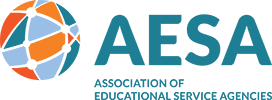Written by Sasha Pudelski, Director, Advocacy at AASA, The School Superintendents Association and member of the AESA advocacy team
Anticipated funding and policy issues coming out of the 2024 election and what to watch for as a public school educator.
While the election results are still being distilled and we do not know with certainty who will control the U.S. House of Representatives, the AESA team predicts there will be a few extremely significant funding and policy issues that will be at the top of the agenda for the 119th Congress with Republicans in control of the Senate and the White House.
1. Funding
The first battle we anticipate will be over the finalization of the FY2025 funding for the U.S. Department of Education. As usual Congress did not finalize the appropriations for the 25-26 school year by September 30th and kicked the proverbial can to December 20th. Speaker Mike Johnson has indicated that if Trump were to win, he would not want to negotiate funding levels for FY25 with Biden but wait until more favorable negotiations with Trump could occur. Now that President Trump will be President again, it is expected that the FY25 levels may not be finalized until the spring.
This delay in getting agreement on FY25 numbers does not bode well for K12; the current bipartisan appropriations bill approved by the Senate Appropriations Committee includes $12 billion more for the Department of Education programs than the Republican bill approved by the House Appropriations Committee. President Trump has a history of supporting draconian funding cuts for Title I and other critical formula programs and we should expect he will be much more supportive of the House’s proposals to eliminate Title II and Title III and reduce Title I spending by 25%.
This doesn’t mean that cooler heads can’t or won’t prevail, but already the rhetoric that districts wasted $190 billion in COVID-relief dollars is echoing through the halls of Congress and superintendents would be lucky to have level-funding for FY25 if not slight decreases in funding. It is realistic and measured to anticipate that a best-case scenario is level funding, and that feels like a far reach.
2. Vouchers
The second battle will occur over the desire to include school vouchers when Republicans take steps to enact widespread tax policy changes akin to what was done during President Trump’s first term when the Tax Cuts and Jobs Act of 2017 was passed.
In the 2017 bill, there was an expansion to allow 529 accounts to be used for private school expenses. We expect that there will be an aggressive push to also enable 529 accounts to be used for homeschooling expenses. However, the much more challenging fight will be to stop the Educational Choice for Children Act, a $5 billion a year tax credit voucher scheme devised by former Secretary DeVos, from becoming law.
Convincing Republican lawmakers that it would be wiser to invest in tax credits that benefit public education (like increasing tax credits for teachers in high-need schools, tax credits for businesses that invest in CTE programs, etc.) or that even the absence of investing $5 billion in private schools and homeschools would be a better policy decision that benefits more children will be incredibly difficult and will require engagement and support from parents, educators and many other public education beneficiaries.
3. E-Rate
The third battle is around the E-Rate program, and more specifically the broader fund that supports E-Rate and its three sister programs. The Universal Service Fund (USF) provides for four programs that support internet connectivity:
- schools and libraries (E-Rate);
- low-income (home internet);
- high cost (Expensive to connect areas) and
- rural health care (think: telehealth).
A circuit court case from July is in the queue to be considered by the Supreme Court. We are engaged in an effort to support the case, looking to protect and preserve the USF programs, given the critical role they play in ensuring access to connectivity.
As we wait for the case to be heard, we are also engaging in a push on Capitol Hill. Senator Ted Cruz is returning and is the presumed chair of the Senate Energy & Commerce Committee, the committee with jurisdiction over the FCC. We have worked closely with the office on a host of bills he has introduced, none of which are all that friendly to or supportive of E-Rate.
We face an uphill effort (pun intended) in leveraging Congress as a check-and-balance on the court threats. If the Supreme Court rules that the universal service fund mechanism is unconstitutional and we cannot find an expedient way for Congress to pass legislation to protect and preserve the program, that decision would be, to quote FCC Chairwoman Jessica Rosenworcel, ‘catastrophically chaotic’ as the $9 billion USF funding would dry up, upending connectivity across multiple sectors of the economy across the country.
Specific to E-Rate, the nearly $4 billion in funding available to schools would go away, leaving schools on the hook to cover that budget hole.
Specific to policy, Republicans are expected to make quick work of rescinding the recently enacted Title IX regulations early in the Congress as well as to consider a variety of bills that focus on the intersection of parental rights and data privacy. Among those could be bills that would require districts to provide parents with more access to curriculum, technology, student records and other materials or risk getting sued or bills that would modernize FERPA and PPRA.
A focus on civil rights and nondiscrimination policies particularly for transgender students in schools may also occur. We could also see the Trump administration move to roll back the recent increases to overtime pay (the second phase-in of the increase is scheduled to take effect on January 1).
Our Path is Forward
AESA members and the communities they serve cover the entire political spectrum and open their doors every day regardless of Congressional (in)action. We have worked with all combinations of political leadership, and the incoming Republican trifecta is nothing new. We stand ready to help both Congress and administration to know better, so they can do better, as it relates to policy and funding that strengthens public schools.
While we can’t know for certain what advocacy we will need to do next year, please know that AESA’s advocacy can only be successful with your engagement. Take the time to follow us on social media and read our Federal Updates, so you can stay up to date on what’s happening to make sure you receive our calls-to-action and have easy access to your members of Congress.

